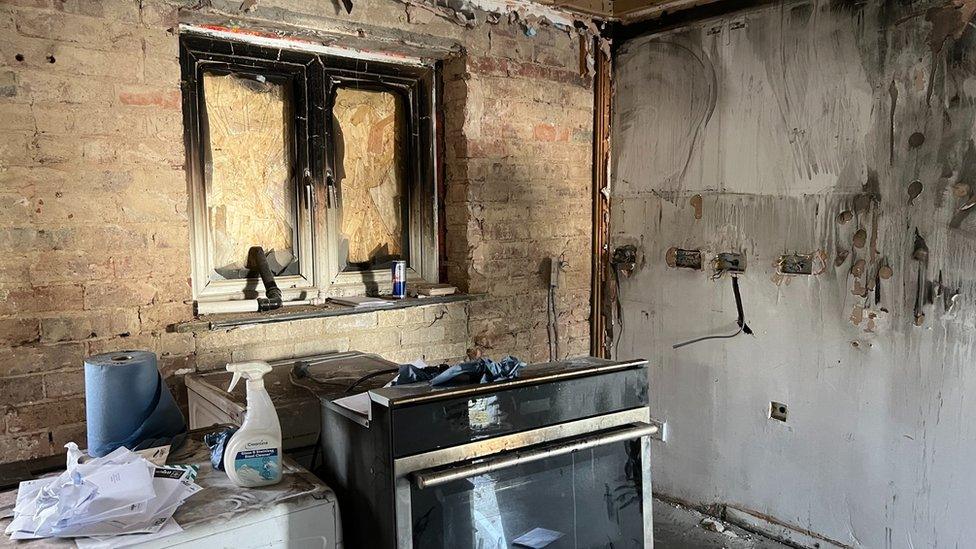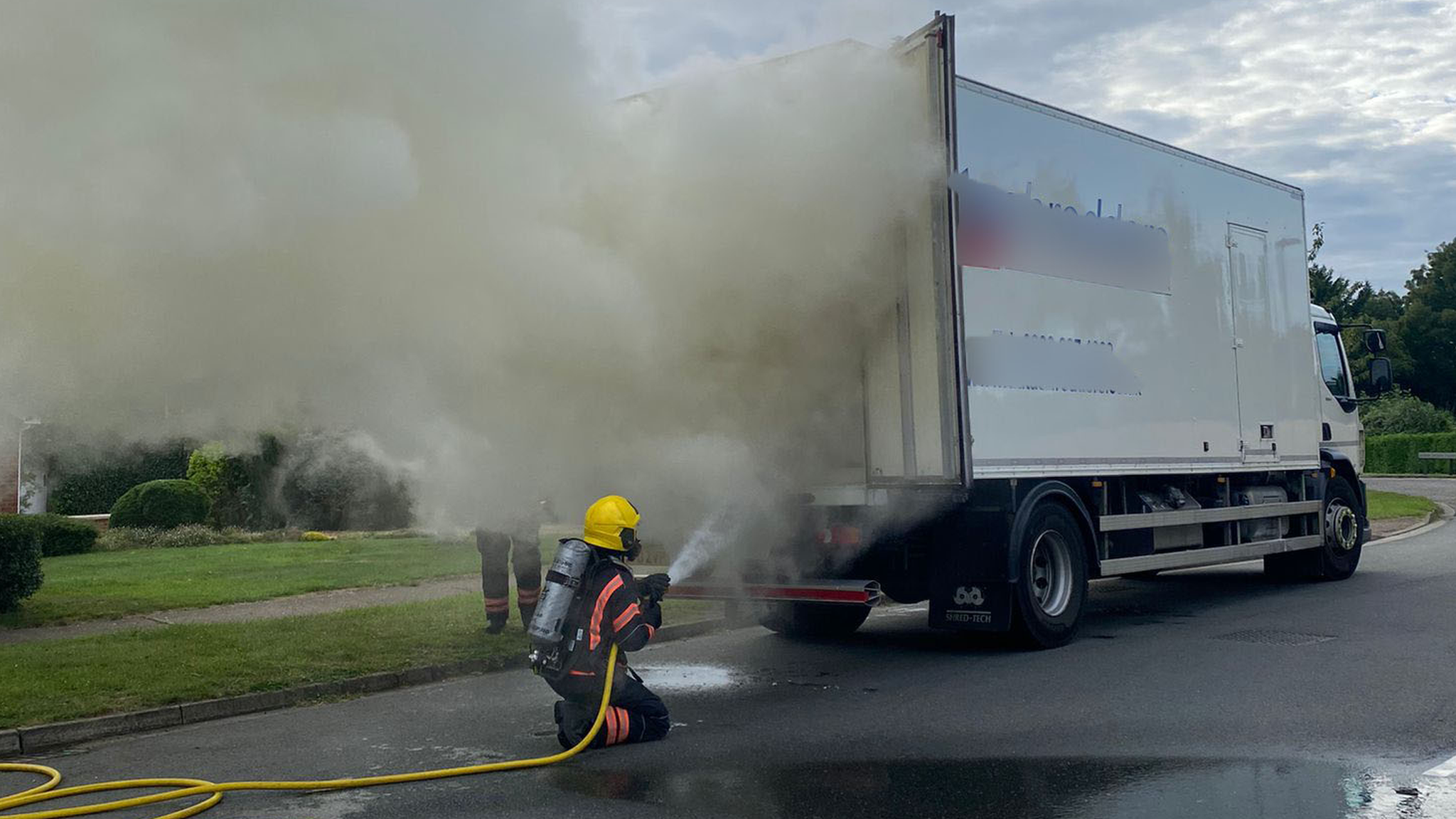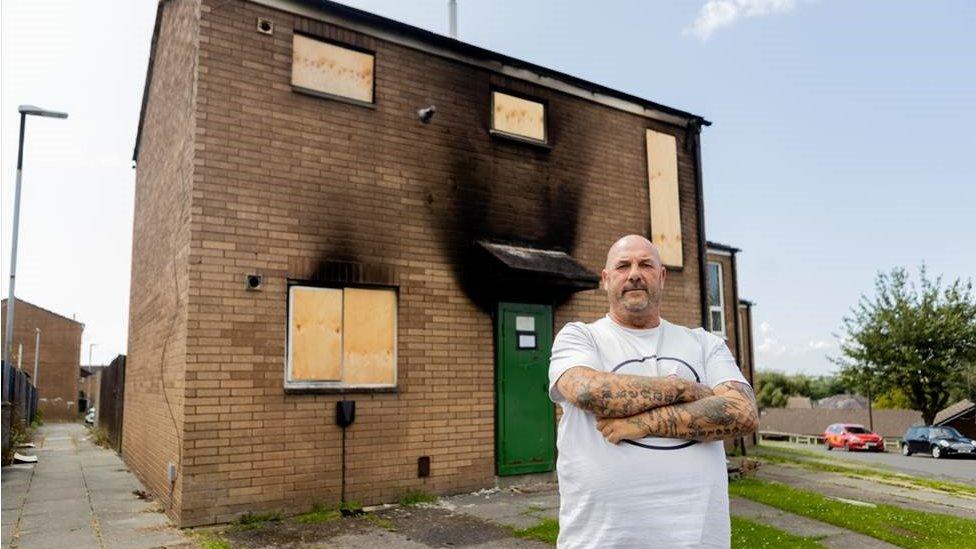West Yorkshire Fire chiefs urge caution after rise in lithium battery blazes
- Published

An overheating electric bike batery destroyed the kitchen of this home in Halifax
People are being urged not to overcharge electrical items after a rise in the number fires caused by overheating lithium batteries.
West Yorkshire Fire and Rescue Service (WYFRS) said in 2022/23 they had dealt with 29 such fires, up from just nine in 2021/22.
Lithium batteries are used in a range of items, from electric cigarettes and mobile phones to electric bikes.
WYFRS said batteries overheating during charging pose a risk of explosion.
A spokesperson said the biggest cause of fire from a battery in the last year was thermal runaway, where overheating happens to an uncontrolled level.
"We see time and time again how leaving lithium batteries to charge while unattended, or while occupants are sleeping, increases the fire risk," said Lee Miller, the service's district commander for Leeds.

'We're going to die'

A fire caused by an electric bike overheating destroyed Emmaleigha Reilly's kitchen
Emmaleigha Reilly was asleep at her home in Halifax in February when an electric overheating bike battery caused a fire.
"My two little cousins came barging into my bedroom screaming 'there's a fire'," she said.
"I just thought 'I am going to die, we're going to die."
She said the family managed to escape by jumping through a window as the blaze had blocked the hallway downstairs.
The fire severely damaged the kitchen and the hallway and caused smoke damage throughout the property.
"The fire brigade, they came out and told us it was the bike," she added.
"It was left just on the side, it wasn't on charge."
She said they had no idea it and other everyday electrical items could pose such a risk.

The fire service has also warned people not to risk blocking their escape route in case of a fire by charging items, especially electric bikes or scooters, in a hallway or near a door.
Paul Daly, Wakefield district commander, said the high amount of energy stored in lithium battery packs significantly increased the risk of fire.
"When we do attend these incidents we do tend to see the damage to the property is extensive," he said.

Paul Daly, from the fire service, said lithium battery fires could cause extensive damage
He said their advice was for people to follow the safety instructions that came with the product.
"Don't overcharge them, when the device is charged unplug the source, don't charge them in places where there is a high heat and when you dispose of them take to a reputable site and dispose of them correctly," he said.

'It was carnage'
Mark Radley is sales manager at Trade Bathrooms in Castleford, where a large fire broke out in April 2022.
"It was carnage, the building was just destroyed," he recalled.
"[Firefighters] saw we had a work bench upstairs with a drill that had been left charging all night and the fire officers were certain that had caused the fire.
"Apparently they can get very, very hot and the drill battery had exploded."

Mark Radley said the business now makes sure nothing is left charging overnight
He said he and his colleagues were now very conscious of the risks batteries posed.
"We do have a check round the building to make sure nothing is plugged in that could cause such a thing to happen again," he added.

A spokesperson for the Department for Business and Trade said it took all incidents of fires involving lithium batteries seriously.
"The Office for Product Safety and Standards is working closely with the fire service to review all evidence of fires involving lithium batteries in e-bikes and e-scooters to ensure the product safety issues are properly assessed and action is taken to protect users from harm," they added.

Follow BBC Yorkshire on Facebook, external, Twitter, external and Instagram, external. Send your story ideas to yorkslincs.news@bbc.co.uk, external.
- Published27 August 2023

- Published27 July 2023

- Published7 March 2023
